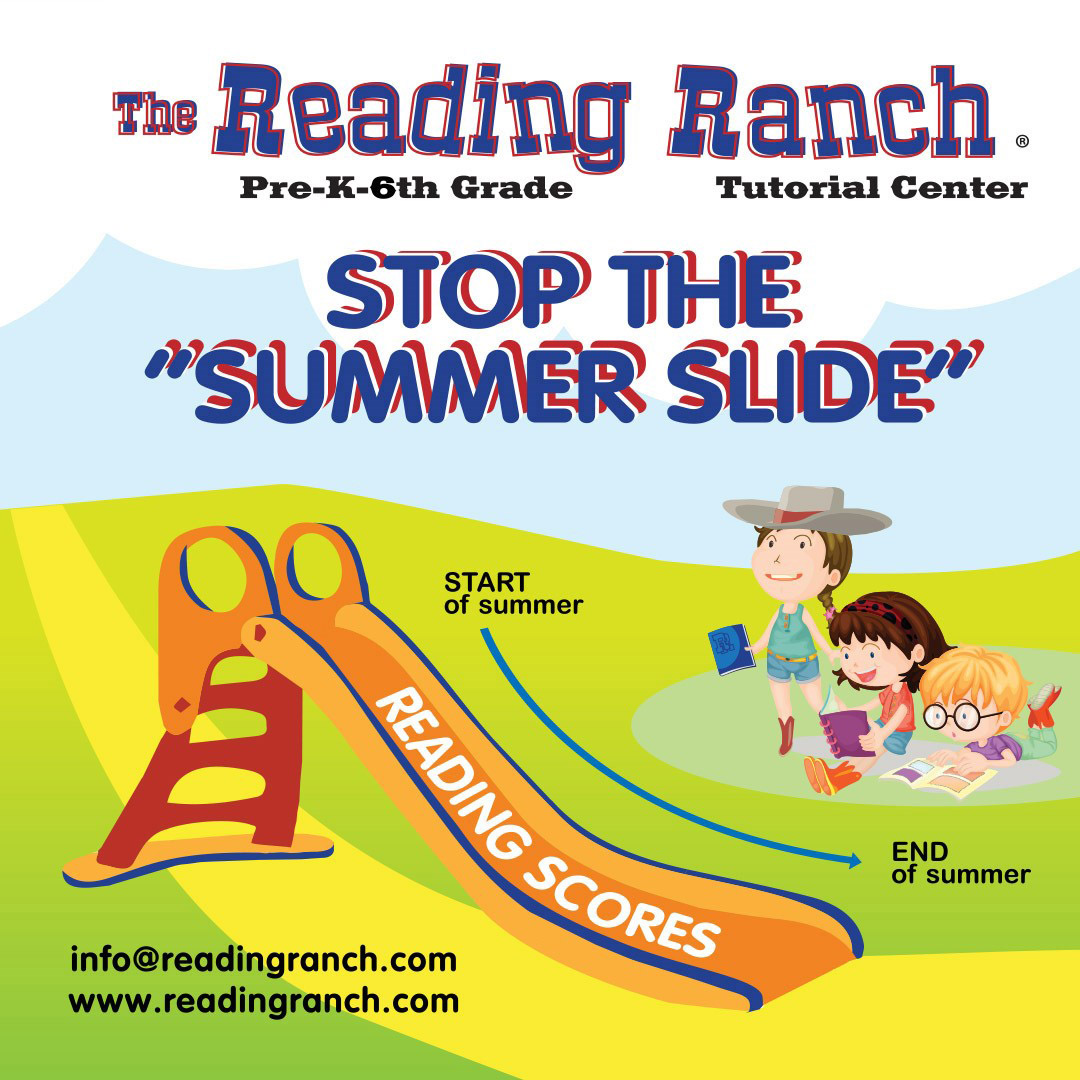What is the Summer Slide?
Researchers have known about the summer slide since at least 1996 when one of the first comprehensive studies on this phenomenon was published. The study showed that kids lose significant knowledge in reading and math over their summer vacation from school. This affect aggregates year after year as they experience more skill loss each additional summer.
It’s no secret that summer can be tough on kids. A more recent study of children in 3rd to 5th grades also showed that students lost, on average, about 20 percent of their school-year gains in reading and 27 percent of their school-year gains in math during summer break.

Who Is at Risk for the Summer Slide?
Younger children are prone to the most learning loss because they’re at a crucial stage in their development. “In general, kids learn a lot more in kindergarten, first grade, and second grade than kids in middle school or high school because learning follows a curve where it’s accelerated early in life and then plateaus,” says James Kim, Ed.D., an assistant professor of education at Harvard University. “Things like decoding, letter knowledge, and word reading skills are very susceptible to decay without frequent practice, as are math facts like addition and subtraction.”
Older kids are more likely to retain what they learned during the school year, but summer learning loss can still put them behind when they return to the classroom in the fall. Test scores may show some regression, which can have a domino effect that leads to even more skill loss and knowledge gaps down the road.
What Parents Can Do
The best way to prevent summer learning loss is to get your kids engaged in summer learning programs. Many local libraries and community centers offer a variety of summer enrichment programs that can help keep your kids sharp.
Other tips for preventing summer learning loss include:
Let kids read what they enjoy
- Reading for pleasure is one of the most effective strategies for preventing summer learning loss. Encourage your kids to spend some of their summer reading books they like instead of just doing more rote practice.
- If your child enjoys soccer, find some articles and books on some of her favorite players or teams. If she is interested in dogs, how about some books on different breeds of dogs, or simply some classic books like Old Yeller or Where the Red Fern Grows.
- If your child loves baseball, set him up with some nonfiction books about the sport and its history. If he’s a video game fanatic, look for books that focus on his favorite characters.
- The topics are endless!
Set aside time for reading each day.
- Make sure your kids are reading every day, even if it’s just for 20 minutes. Help them pick out books they’ll be interested in and make regular trips to the library to always have something new to read.
Go somewhere!
- Novelty and change stimulate the brain and promote learning, and summer is the perfect time to travel and explore new places. Whether you go on a family vacation or take day trips around your town, take advantage of summer as an opportunity to learn about different cultures and environments.
- Visit a museum, go hiking in a state park, or spend an afternoon at the beach. You can even turn everyday errands into learning opportunities by having your kids help you with the map when driving somewhere new.
Imagination
- Kids who use their imagination also expand their vocabulary and build their literacy skills. By engaging in summer learning activities that encourage creativity and play, kids can explore the world around them and imagine new possibilities. Whether exploring nature or building with blocks, summer is the perfect time for kids to unleash their imagination!
- One essential benefit of summer learning for elementary school students is that it encourages their imaginations. Whether exploring new activities, reading new books, or developing new skills, kids can explore their interests and let their creativity run wild. This helps keep them engaged and interested in learning over the summer months and sets them up for success in the future.
- One essential benefit of summer learning for elementary school students is that it encourages their imaginations. Whether exploring new activities, reading new books, or developing new skills, kids can explore their interests and let their creativity run wild. This helps keep them engaged and interested in learning over the summer months and sets them up for success in the future.
